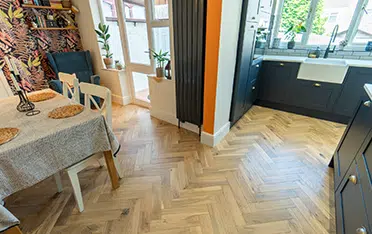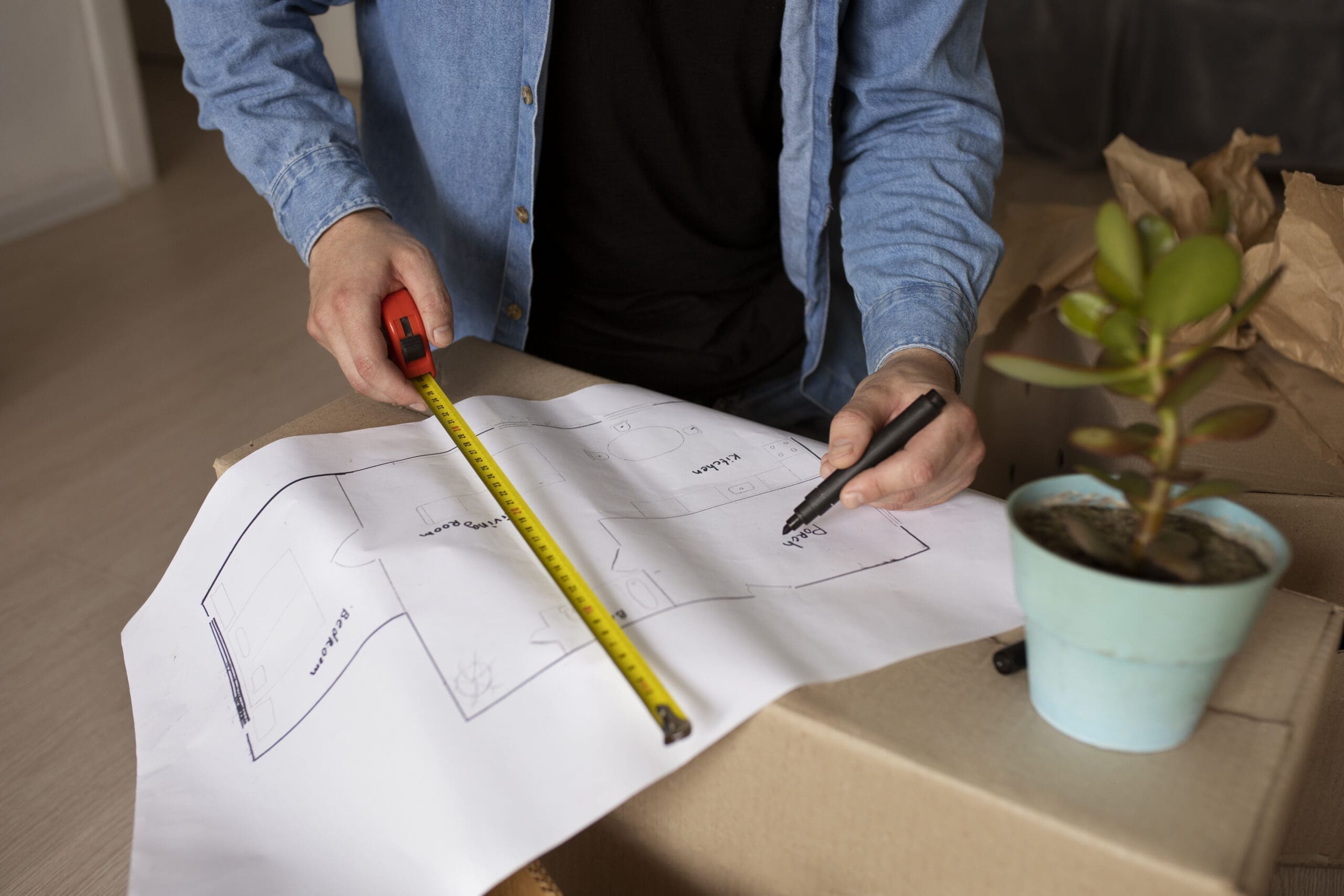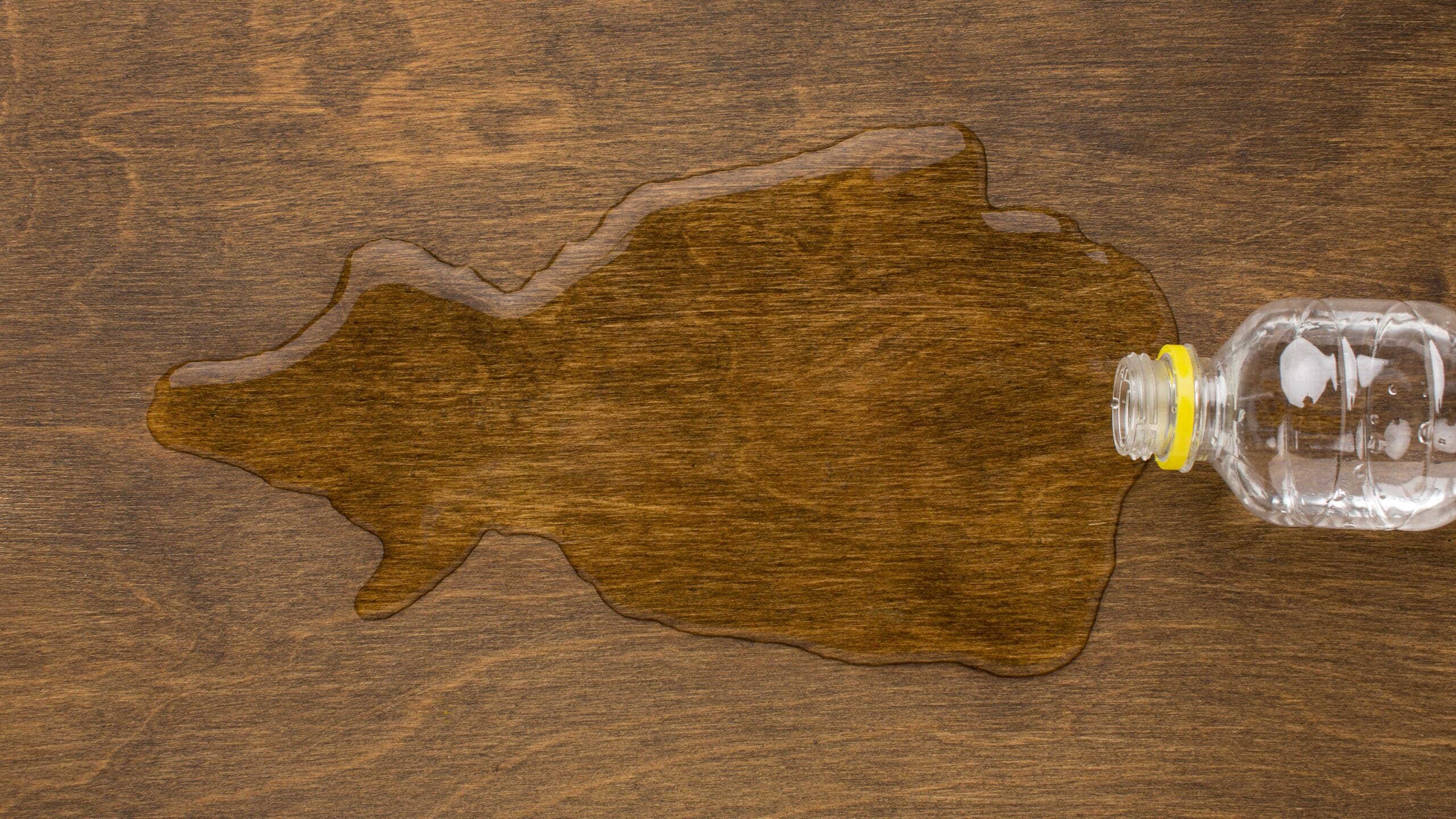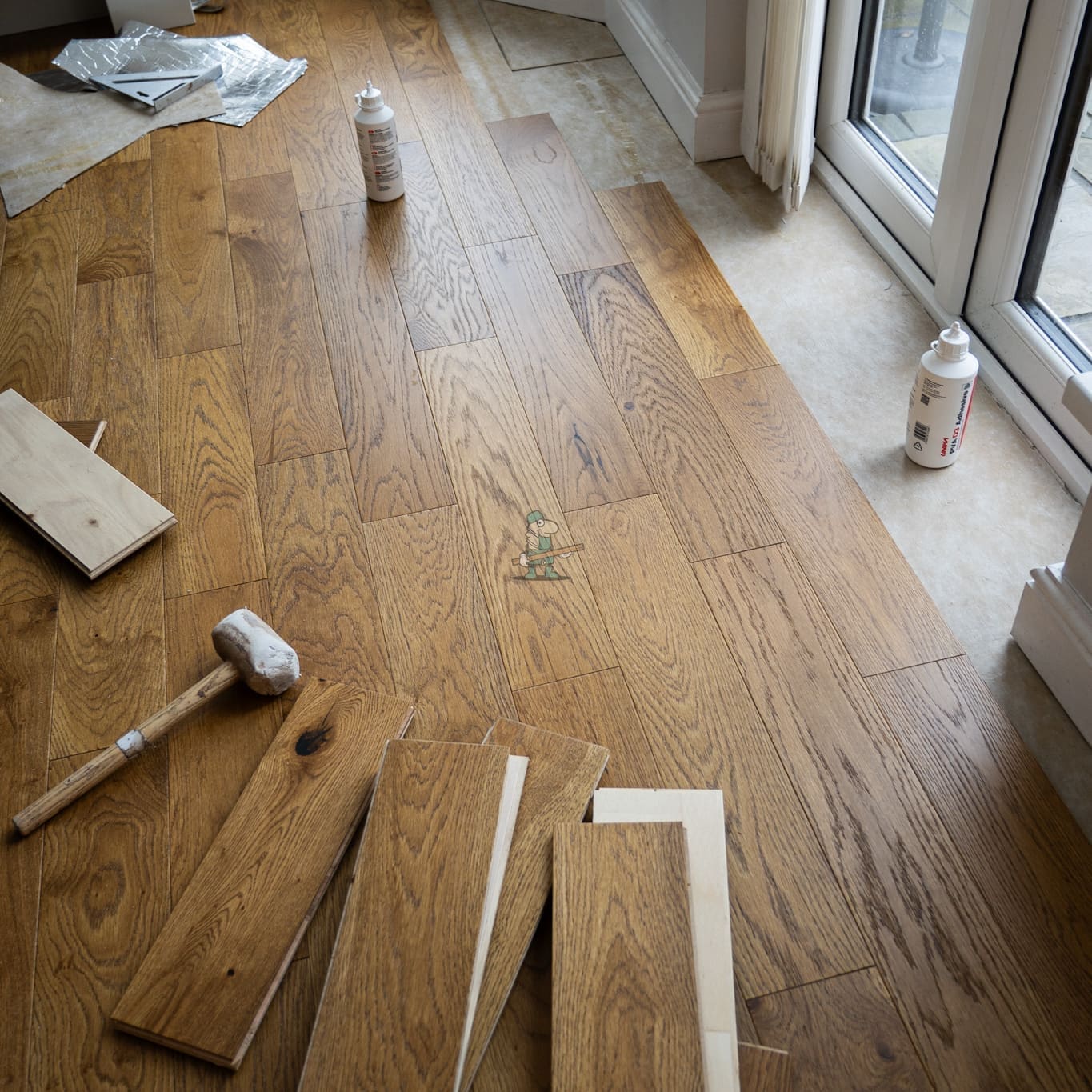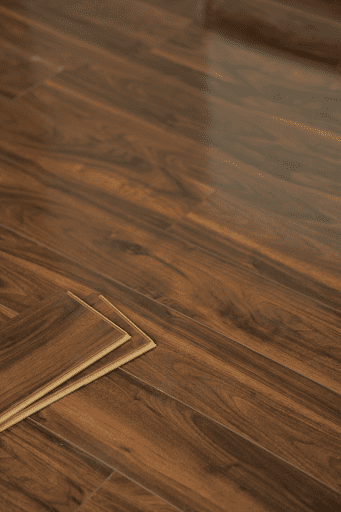Engineered Wood Flooring is a composition of cross-layered plywood and has a top layer of real wood giving it a very similar look to actual hardwood whilst adding additional durability. While Engineered Wood flooring can be an incredible option to add to your home, there are some things that you should be aware of to aid your decision of choosing the right floor for you.
Limited Refinishing Potential
Engineered Wood can be sanded and refinished to repair surface damage yet it has a finite number of refinishing opportunities. The thickness of the top veneer layer determines how many times it can be refinished. Generally, Engineered Wood tends to have a wear layer (veneer layer) of 2.5mm to 6mm. Thicker veneer layers offer more refinishing potential, but it’s still not as many times as solid hardwood.
In comparison to Solid Wood Flooring, this means that Engineered Wood won’t last nearly as long as it cannot be maintained to as high of a standard.
- Engineered Wood Flooring only has a finite number of times it can be refinished due to the veneer layer.
- The thicker the veneer layer, the more refinishing potential.
Susceptibility to Water Damage
Engineered Wood Flooring does actually have some water-resistant properties giving it more protection against moisture in comparison to Solid Wood Flooring. However, it is unfortunately not designed for areas of high moisture such as bathrooms. Installing Engineered Flooring in these areas can lead to extreme warping, cupping and damage if exposed to moisture for too long.
For areas which are more prone to moisture, Luxury Vinyl Flooring (LVT) or Water-Resistant Laminate Flooring should be used instead to create a similar effect whilst still being able to protect the flooring from any damage.
- While Engineered Wood flooring has some water-resistant properties, it is not suitable for areas of high moisture.
- LVT or Water-Resistant Laminate Flooring should be used in these areas instead.
Vulnerability to Stains & Scratches
While Engineered Wood flooring is generally more durable than solid wood, it can still be susceptible to scratches and dents, particularly in high-traffic areas or if not properly maintained. This is due to the fact that the top layer of hardwood on Engineered Flooring is significantly thinner than Solid Wood giving it less protection overall. As well as this, not using furniture pads or dragging heavy objects across the floor can make things worse causing more damage to the Engineered Flooring.
To help minimise wear & tear as well as any other damage, avoid installing Engineered Flooring in a high traffic area, use furniture pads and regularly sweep/vacuum the floor.
- Engineered Flooring is not as durable as Solid Wood because the materials are not as dense leading it to become easily damaged.
- Avoid installing in a high traffic area, use furniture pads and regularly clean to prevent excessive damage.
Cost Consideration
Engineered Wood flooring definitely isn’t the most expensive flooring type out there. However, it also definitely isn’t the most affordable option. With Laminate Flooring starting from £13.99 per m2 and Luxury Vinyl Flooring (LVT) starting from £20 per m2. Whilst Engineered Wood flooring starts at 30 per m2 it can be quite a pricey option for some.
The reason for this is because the top layer uses real hardwood which not only gives it a more authentic look but gives it a significantly longer lifespan. As well as this, the complex manufacturing process also plays a role in the increased price. In the long run, Engineered Wood can give you more of a run for your money as it will significantly outlast cheaper options. However, in order to save money when choosing Engineered Wood, opt for more common wood types such oak or walnut as opposed to rarer types.
- Engineered Wood is cheaper than Solid Wood but is far more expensive than Laminate and Luxury Vinyl (LVT).
- If you do choose Engineered Wood, opt for more common species instead of rare ones .
Hollow Sound Underfoot
Engineered Wood flooring has the tendency to produce more noise from footsteps and other impact sounds. This is largely due to the structure of the many plywood layers which can cause movement. As well as this, if the subfloor is not prepared properly then it can cause gaps to appear within the flooring which can also contribute to higher noise levels.
To minimise the noise levels from Engineered Wood flooring, ensure that it is installed correctly and thicker planks are used to help absorb any noise that would otherwise be created.
- Engineered Flooring can be verynoisy because of the structure of the planks and improper installation.
- Ensure the planks are installed properly and opt for thicker planks.
Conclusion
In conclusion, Engineered Wood Flooring may not be for everyone because of its limited refinishing potential, lack of water resistance, susceptibility to scratches and higher costs than other flooring options. However, in spite of these downsides, Engineered Wood can still be an incredible option for its versatility, long lasting performance and aesthetics.
Whether it’s the right choice for you depends on your specific needs, budget, and preferences. Careful consideration and consultation with a flooring professional can help you make an informed decision.
Contact Us
For any flooring queries, drop us an email at info@flooringsurgeons.co.uk – or Visit our showrooms located in Birmingham & Wolverhampton!
Shop our premium Engineered Wood flooring collections online and in-store today!
Halesowen
214A Dudley Road. Halesowen, Birmingham, B63 3NJ
0121 274 8575
Monday – Friday: 9AM – 6PM | Weekends: 10AM – 4PM
Wolverhampton
317 Penn Rd, Wolverhampton, West Midlands, WV4 5QF
01902 836666
Monday – Friday: 9AM – 6PM | Sat: 10AM – 4PM | Sun: Closed
info@flooringsurgeons.co.uk
fitting@flooringsurgeons.co.uk
customerservices@flooringsurgeons.co.uk




